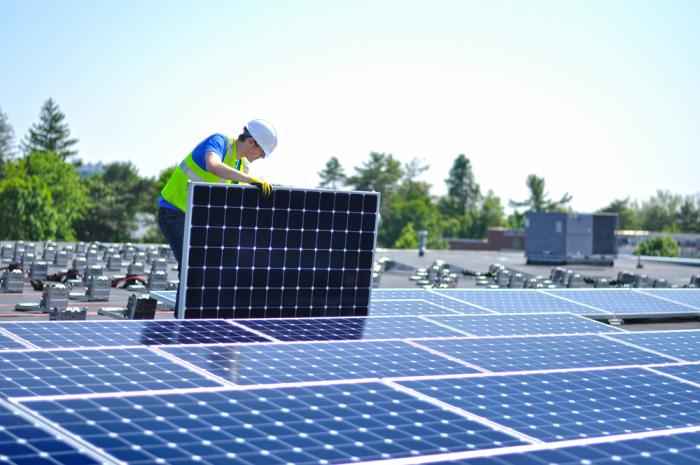
This is the prepared testimony of SunPower President and CEO Tom Werner, delivered to the U.S. International Trade Commission on Oct. 3, 2017.
Madame Chairwoman and Commissioners, Thank you for the opportunity to address you today.
My name is Tom Werner and I’m the president and chief executive officer of SunPower, the nation’s second largest solar company and the largest one affected by this proceeding. For more than 30 years, we have designed, manufactured and installed the world’s highest efficiency solar technology. We have more than 1,000 U.S. employees in 13 cities, from San Jose to Boston. Our dealer partners, two of whom are speaking today, support over 12,000 jobs across 38 states, and our supply chain supports several thousand more. We are, always have been, and always will be an American company and innovator.
Let me be clear: Solar energy is not a one-size-fits-all proposition. At one end, you have low-cost, low-efficiency front contact cells. These are the products with which the petitioners compete.
At the other end, you have highly differentiated products designed in the U.S. This is the case of thin film technology, as well as SunPower’s unique interdigitated back contact cells, which are made of superior raw materials and mono crystalline silicon wafers with specific n-type dopant, that command a premium price. It’s apples and oranges.
For the same reason that First Solar’s thin film technology is excluded, I believe that the Commission should treat IBC technology modules separately. They are in no way comparable with standard PV modules and are not produced in the United States.
We are all concerned about the possibility of a trade-restrictive remedy such as tariffs. At SunPower, we’re already feeling the effects of growing uncertainty. In the last few weeks, we lost a multi-hundred million dollar opportunity to First Solar — who is NOT in this proceeding — because we couldn’t offer price certainty and they could. For us, this reinforces the critical importance of a remedy that isn’t one-size-fits-all. Any proposed remedy should support U.S. customer choice, and not choose winners and losers.
I ask that the Commission recommend relief that favors American workers and American companies, like SunPower. It should take into account the complexity of the marketplace and our nation’s obligations under NAFTA. Equally important, it should take into account the distinctiveness of today’s solar technology and the diversity in the solar industry. Solar energy and its vast supply chain touch nearly every facet of our economy and workforce. We are the steel worker in Pennsylvania, the small business owner in Ohio, the maker of silicon in Michigan, the innovative scientist in California, and the team of hard working men and women installing solar on a home in Florida.
Consider what could happen to utility companies that purchase large-scale solar in the event of a substantial tariff. These companies would arguably have only one solar supply option that does not happen to use silicon. In one of the fastest growing solar segments in the country, the notion of a competitive marketplace would fall by the wayside. Tariffs would essentially create a monopoly that hinders innovation, hurts our nation’s competitiveness and places smaller companies at a significant disadvantage.
Please don’t confuse the increase of low-priced Chinese imports with cutting-edge, premium-priced American technology. As an industry, we’re supporting upstream research and downstream solar businesses that employ more than 260,000 Americans who directly contribute to our nation’s innovation leadership.

